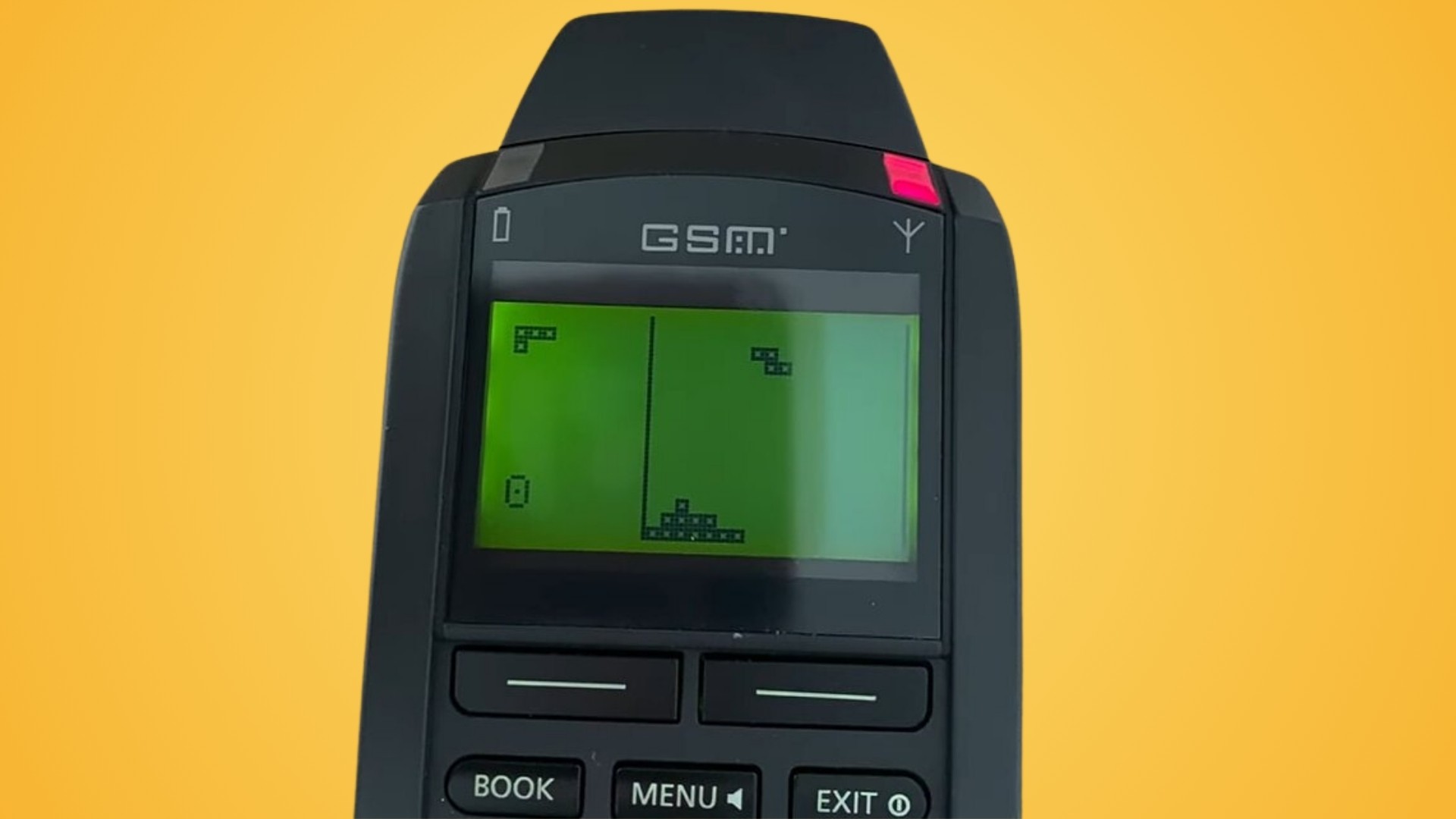If you’re marketing anything in 2025, chances are, Millennials are a key part of your audience. Born between 1981 and 1996, Millennials are now right in the prime of their spending power. Why should you care about Millennials’ characteristics?
Simple.
This generation has a massive influence over markets, trends, and how brands communicate.
From their tech habits to their values around money, career, and identity, understanding Millennials helps you connect in a way that actually resonates.
And when your marketing campaigns resonate? That’s when the conversions start flowing.
Want to learn about other generations, too? Check out our articles on:
Who Are Millennials?
To really get Millennials marketing right, you need to start with the basics—who they are, when they were born, and what shaped their worldview. These details explain a lot about the values, behaviors, and buying patterns you see today.
Millennials Age Range
Millennials were born between 1981 and 1996, which means they’re 29 to 44 years old in 2025.
They’re no longer the fresh-faced college grads—they’re your colleagues, customers, parents, and decision-makers.
This age range is important because it spans major life stages. Some Millennials are managing a mortgage and school drop-offs. Others are still figuring out long-term career moves or starting families a bit later. If you want your message to land, you have to meet them where they are in life.
Knowing this helps you break out of the one-size-fits-all mindset and speak to real, specific Millennial needs.
A Quick Timeline of Millennials’ History
To understand Millennials’ characteristics, it helps to zoom out and look at the major events that shaped their worldview. This timeline gives you a quick overview of how their upbringing, environment, and cultural moments influenced how they think, act, and spend.
1981–1996: Millennial Birth Window
This is the official range that defines the Millennial generation.
Born between 1981 and 1996, they sit right between Gen X and Gen Z, carving out a unique identity rooted in both digital innovation and real-world disruption.
1990s–2000s: Childhood Shaped by the Internet, Cell Phones, and Gaming Culture
Millennials grew up during a tech explosion. They were the first kids to go from VHS tapes to YouTube, from landlines to flip phones to smartphones. They experienced the rise of the internet, video games, and early social networks like MySpace and AIM.
This early exposure shaped their digital-first mindset.
2008: Hit Hard by the Financial Crisis During Career Entry
Just as many Millennials were entering the workforce, the economy tanked. Jobs were scarce. Debt was high. This had a lasting effect on their attitudes toward money, career stability, and long-term planning. It also made them value experiences and flexibility over materialism and rigid life paths.
2010s–Now: Shifted Values
As adults, Millennials became known for seeking work-life balance, expecting brands to be authentic, and prioritizing issues like climate change, inclusion, and mental health.
Their tech fluency also helped shape the creator economy, influencer marketing, and the rise of remote everything.

Millennials Statistics for 2025
- U.S. population: approx. 72 million.
- Hold ~21% of U.S. wealth and growing (up from 6% in 2020).
- 98% use smartphones, heavy app and social media users.
- Millennials are the largest generation in the global workforce and control over $2.5 trillion in annual spending (World Economic Forum, 2024).
- 84% of millennials say they compare prices online before buying, and 70% say they’ll switch brands if it means getting better value (Morning Consult, 2024).
- Millennials spend 6 hours per day on their smartphones, with most of that time going to social media, streaming, and shopping apps (Statista, 2025).
- 75% of millennials say they discover new brands and products via social media, especially Instagram, YouTube, and TikTok (HubSpot, 2024).
- Millennials prefer short, visually engaging content. Over 65% say they’re more likely to watch a short video about a product than read a blog post (Wyzowl, 2024).
- 60% of millennials trust user-generated content more than polished ads (Nielsen, 2024).
- A whopping 72% are willing to pay more for products from brands committed to sustainability, fair labor, or social causes (First Insight, 2024).
- 64% of millennials say they prefer to support brands that take a stand on political or social issues (Edelman Trust Barometer, 2024).
- 61% of millennials prefer shopping on mobile over desktop, especially through apps with seamless UX (Salesforce, 2024).
- 70% use at least one subscription service, whether it’s for entertainment, food delivery, or personal care (McKinsey, 2024).
Millennials: Core Values and Beliefs
If you want to connect with Millennials, you can’t just push products—you need to speak their language and understand what drives them.
These core values explain why they act the way they do, both online and offline.
Emphasis on Purpose and Meaning
Millennials want more than just a paycheck.
They’re looking for meaning in what they do—whether that’s in their careers, the brands they support, or the communities they’re part of. If your brand has a clear mission or social impact, you’re more likely to catch their attention.
Socially Conscious and Value-Driven
One of the defining Millennials characteristics is their social awareness. They care deeply about sustainability, diversity, and equality—and expect brands to care, too. Being silent on big issues or coming off as inauthentic can quickly turn them away.
Flexibility Over Tradition
Millennials are rethinking what success looks like.
Many are moving away from the traditional 9–5, questioning the value of homeownership, and leaning into freelancing, remote work, and alternative lifestyles.
Experience Over Ownership
This generation is all about living fully, not just collecting stuff.
They value travel, concerts, wellness retreats, and self-growth experiences more than buying a house or a luxury car.
For marketers, this means selling the feeling, not just the product.
Millennials Personality Traits
Now that we’ve looked at their values, let’s talk about how Millennials think and behave on a personal level. These traits shape how they shop, interact with brands, and respond to marketing messages, making them crucial for your strategy.
Tech-Savvy and Mobile-First
Millennials grew up alongside the internet and adapted quickly to mobile technology. They’re always online, switching between apps, platforms, and devices effortlessly. If your user experience isn’t mobile-friendly, they’ll bounce in seconds.
Value-Driven and Cause-Aligned
This generation chooses brands that match their beliefs.
If your product supports a cause or promotes positive change, you’ve got a better chance of earning their trust (and dollars). They’re loyal to brands that stand for something real.
Open to Collaboration and Feedback
Millennials love being heard. Whether it’s product reviews, user-generated content, or surveys, they’re into collaborating with brands. That feedback loop helps them feel seen—and makes your campaigns more effective.
Highly Informed
Thanks to 24/7 access to information, Millennials show up to every buying decision with a strong sense of what’s out there.
They research, compare, and validate before they act. Transparency and clarity in your messaging are key—because if you don’t tell the truth, the internet will.

Millennials’ Lifestyle and Habits
When it comes to daily life, Millennials are fully plugged in. Their habits reflect a generation raised on convenience, customization, and connectivity.
These patterns show up in everything—from how they shop to how they relax. And if you’re marketing to them, understanding these behaviors is just as important as knowing their values.
Digital-First Everything
Millennials live online. They prefer digital-first solutions for just about everything: mobile payments, online shopping, streaming services, even virtual healthcare.
If they can do it on their phone, they probably will.
This makes UX design, mobile optimization, and fast-loading content critical. A clunky site or clumsy checkout? That’s an instant turn-off.
Many Millennials Are Mobile Gamers
Gaming isn’t just for Gen Z—Millennials make up a huge chunk of mobile gamers.
In fact, over 60% of Millennials play mobile games regularly (Sensor Tower, 2024). It’s their go-to for stress relief, entertainment, and even social connection.
For marketers, this means mobile games are a prime space for ad placement, branded content, and influencer collabs. If you’re ignoring this channel, you’re missing a major part of their digital life.
Subscription-Obsessed
One big Millennial characteristic: they love subscriptions.
Whether it’s Netflix, Spotify, meal kits, wellness apps, or even pet supplies, they’re into the convenience and personalization that comes with these services.
They don’t want to chase products every month. They want things that fit seamlessly into their lifestyle—and show up when needed.
Constant Multitaskers
Millennials are pros at doing multiple things at once.
They’ll scroll Instagram while watching a show, reply to Slack messages during a podcast, and shop for shoes while waiting for their latte. This always-on behavior means your content needs to stand out fast because attention is limited, and competition is high.
Trust Reviews Over Ads
Forget traditional ads.
Millennials make buying decisions based on peer reviews, influencer recommendations, and how well a brand aligns with their values.
They want authenticity, transparency, and proof. And they’ll gladly do a quick search to back it up before buying.
Millennials’ Interests and Hobbies
- Travel and remote work opportunities.
- Fitness, wellness, and mental health.
- Side hustles, freelancing, and entrepreneurship.
- Social media creation (content, vlogging, storytelling).
- Cooking, DIY, and pet ownership.
Common Misconceptions About Millennials
Let’s clear the air.
There are a lot of tired stereotypes floating around about Millennials. Some might’ve been true once, or for a small slice of the generation, but most are just outdated or plain wrong.
If you’re still relying on these clichés in your marketing strategy, you’re likely missing the mark.
They’re Not All Broke or Irresponsible
Sure, many Millennials started adulthood during rough economic times.
But that doesn’t mean they’re careless with money. In fact, many are financially savvy, tracking expenses with apps, investing in crypto or index funds, and side-hustling on the weekends.
They’re building wealth on their own terms.
They’re Not Entitled—They Just Question Old Rules
Millennials often get labeled as “entitled.” But let’s reframe that.
They aren’t asking for handouts—they’re challenging outdated systems. The 9–5 grind, unrealistic housing markets, and rigid corporate structures just don’t make sense to a generation raised on tech and flexibility.
It’s not about laziness. It’s about building a smarter way to live and work.
They’re Not All About Selfies
The internet loves to tease Millennials about their brunch photos and Instagram habits.
But the truth?
They care deeply about causes, community, and connection. From voting with their dollars to supporting mental health and social justice movements, this generation shows up.
They’re Not Kids Anymore
This is a big one.
Millennials aren’t teenagers anymore. The youngest are pushing 30.
The oldest? They’re well into their 40s.
Many are raising kids, managing teams, buying homes, and making major financial decisions. So if your messaging still treats them like college students, it’s time for a reset.
Marketing to Millennials: What Works
You’ve got the facts. You know the values. Now here’s the part that really matters—how to market to Millennials.
This generation can spot a generic campaign a mile away. But if you show up with the right tone, channels, and message? You’ve got a shot at real connection.
Be Authentic and Mean It
Millennials expect authenticity.
They want to see real people, real values, and brands that stand for something. Whether it’s sustainability, inclusion, or just being honest about your pricing, leading with values makes a difference.
Fake? They’ll scroll past you in a second.
Make It Mobile-First and Fast
You’re not just competing with other brands—you’re competing with every other app on their phone.
That means your mobile experience better be seamless. Fast load times. Clean design. Easy checkout. No friction.
If you waste their time, you’ve already lost them.
Ditch the Fine Print
Transparency isn’t optional.
Millennials expect clear pricing, no shady fees, and easy-to-understand policies. Hiding stuff in the small print or using sneaky upsells will only backfire.
Earn trust by laying it all out, upfront.
Let Others Speak for You
Want instant credibility? Let your users talk.
Reviews, ratings, and user-generated content are major drivers of trust. The more real voices you showcase, the more confident Millennials will feel saying “yes” to your product.
Influencers and creators also play a huge role here. Just make sure the partnerships are aligned with your brand and actually feel natural, because Millennials can sniff out a fake #ad in a heartbeat.
Want to learn how to market to other generations? Check out our articles on:
Millennials vs Other Generations
Understanding how Millennials differ from other generations helps fine-tune your marketing.
Here’s a quick breakdown. If you’re looking to compare more deeply, each of these matchups is worth exploring further.
Millennials vs Gen X
When it comes to Millennials vs Gen X, the biggest contrast is mindset.
Millennials tend to be collaborative, feedback-driven, and team-oriented. Gen X? More independent and self-reliant, shaped by a DIY mindset and analog roots.
Tech-wise, Millennials are digital-first. Gen X adapted to digital later in life—making them tech-capable but not always native in behavior.
Millennials vs Baby Boomers
In the Millennials vs Baby Boomers comparison, purpose is the dividing line. Millennials are all about meaning and mission—whether that’s in their work, purchases, or the brands they support.
Boomers, on the other hand, often prioritize financial security, stable careers, and traditional milestones like homeownership.
Millennials vs Gen Z
Here’s where Millennials vs Gen Z gets interesting. Millennials were the first to embrace digital culture—but Gen Z was born into it.
Millennials remember life before smartphones. Gen Z doesn’t. That difference shapes everything from attention span to content expectations. Gen Z leans shorter, faster, more visual, while Millennials still like a good long read (sometimes).
Millennials vs Gen Alpha
It’s early, but the Millennials vs Gen Alpha gap is already clear. Millennials are digital pros. Gen Alpha? They’re growing up with AI, smart devices, and hyper-personalized everything from day one.
Where Millennials adapted, Gen Alpha is being raised by the tech that Millennials helped normalize.
Fun Facts About Millennials
- First generation to grow up with the internet and social media.
- Known as the “avocado toast” generation (thanks, Instagram).
- 73% prefer to spend money on experiences over things.
- Delaying traditional life stages—marriage, kids, homeownership.
- Spend over 5 hours per day on their smartphones (Statista, 2024).
- 60% say they use streaming more than live TV (Pew Research, 2024).
- 86% check online reviews before making a purchase.
- Over 50% have a side hustle or freelance income stream.
- Big on sustainability—3 out of 4 prefer to buy from eco-conscious brands.
- More likely than any other generation to adopt new tech early (like VR, AI tools, and crypto wallets).
- Helped revive niche trends like vinyl records, Polaroid cameras, and 90s fashion.
- Known for turning hobbies (like gaming, thrifting, or baking) into monetized micro-businesses.
Final Thoughts on Millennials Characteristics
Marketing to Millennials starts with understanding what truly matters to them.
This generation is tech-savvy, values-driven, and experience-focused. They expect brands to be real, responsive, and ready to meet them on their terms—whether that’s on mobile, through creators, or with meaningful purpose behind the messaging.
If your brand shows up with authenticity, flexibility, and clear intent, you’ll earn their loyalty.
They’re online. They’re informed. And they’re more engaged than ever.
Meet them there.






